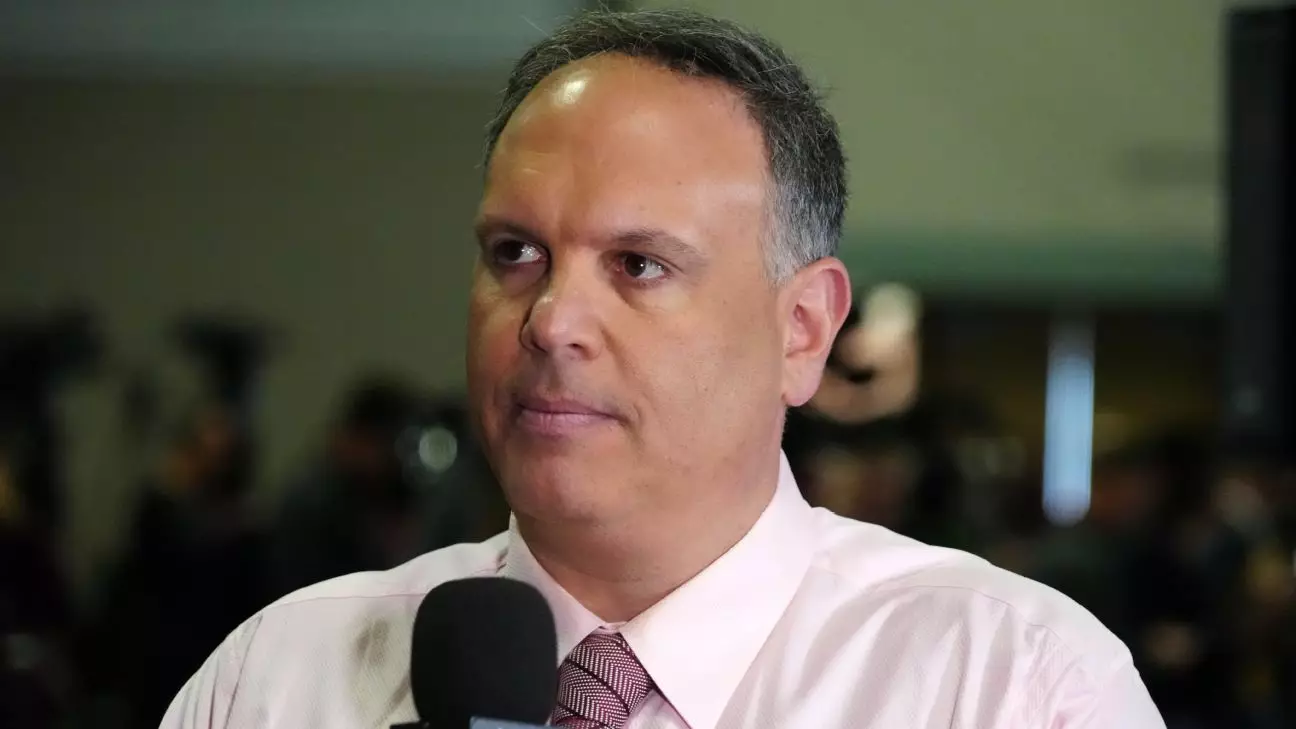The New York Jets, a franchise with a storied yet tumultuous history, are embarking on a critical organizational overhaul as they look to inject new life into a team that has struggled significantly in recent years. With a dismal record of 3-8 and an impending playoff drought that has reached almost 14 years, the Jets have opted to dismiss both their head coach and general manager. In a strategic move marked by the desire to draw from past experiences and insights, the Jets have partnered with The 33rd Team, a think tank established by former Jets General Manager Mike Tannenbaum in 2019. This alignment may signal a turning point, but whether it leads to sustained success remains contingent on several interconnected factors.
Historical Context and Current Challenges
The Jets’ choice to fire coach Robert Saleh and general manager Joe Douglas is not merely a reaction to a lost season; it represents an acknowledgment of a deeper crisis afflicting the organization. After years of inconsistent performances and missed opportunities, fans have grown increasingly restless. The franchise has not tasted playoff success since 2010, and the 33rd Team’s involvement comes at a moment when the Jets are looking for a sound and informed strategy for leadership renewal.
In looking back to 2015, the last time the Jets searched for both a head coach and a GM in the same season, the team made impactful hires by leveraging the wisdom of experienced consultants like Charley Casserly and Ron Wolf. The Jets secured Mike Maccagnan and Todd Bowles, decisions that offered a semblance of hope, albeit temporarily as the cycle of highs and lows continued. This year, however, they are enlisting The 33rd Team, under the guidance of Tannenbaum and fellow former GM Rick Spielman, thereby tapping into a modern blend of analytics and football savoir-faire as they approach this pivotal search.
The 33rd Team presents itself as an intersection of media, technology, and former executive expertise. With Mike Tannenbaum at the helm, supported by Rick Spielman, the organization is tasked with not only vetting potential candidates but also providing unprecedented data analysis previously unavailable to the Jets. This innovative approach aims to align the Jets with contemporary hiring trends, which have increasingly relied on measurable performance indicators and data-driven decision-making—elements that have become critical in other professional sports leagues and business sectors.
While it is premature to assume the specifics of the contributions that Tannenbaum and Spielman will make in the interviews, their oversight throughout the process is invaluable. By leveraging their extensive experience and network, they serve as strategic advisors to owner Woody Johnson and the interim leadership comprised of Jeff Ulbrich and Phil Savage. This partnership could prove instrumental in establishing a more rigorous candidate evaluation process that focuses not only on professional accomplishments but also on cultural fit and vision alignment with the Jets’ long-term goals.
As the Jets assess potential candidates, the history of Tannenbaum’s hiring choices will inevitably spur speculation. His previous hiring decisions for the Jets, such as Rex Ryan—who found immediate success—remind fans of a potential strategy rooted in familiarity. Ryan has been vocal about his desire for a reunion, a sentiment that, while appealing to some, may overlook the complexities that have compounded the Jets’ struggles over the years. While there may be merit in considering well-known figures, the Jets would be wise to temper nostalgia with a critical assessment of what is fundamentally needed to build a competitive team.
The decision-making process for the Johnsons will ultimately shape not just the upcoming season, but potentially the future of the franchise. The overarching danger lies in repeating past mistakes or allowing sentiments to cloud judgment. The Jets must remain vigilant in ensuring that their new hires can navigate the rigors of the NFL landscape, fostering a culture that prioritizes winning and accountability.
The Jets’ current search for new leadership through the collaboration with The 33rd Team represents a significant step toward an earnest rebuild. While the road ahead is fraught with challenges, the focus on data-driven insights coupled with experience could be the catalyst for a renaissance of sorts in New York. The crucial test lies not merely in who they hire, but in their ability to cultivate a sustainable winning culture.

